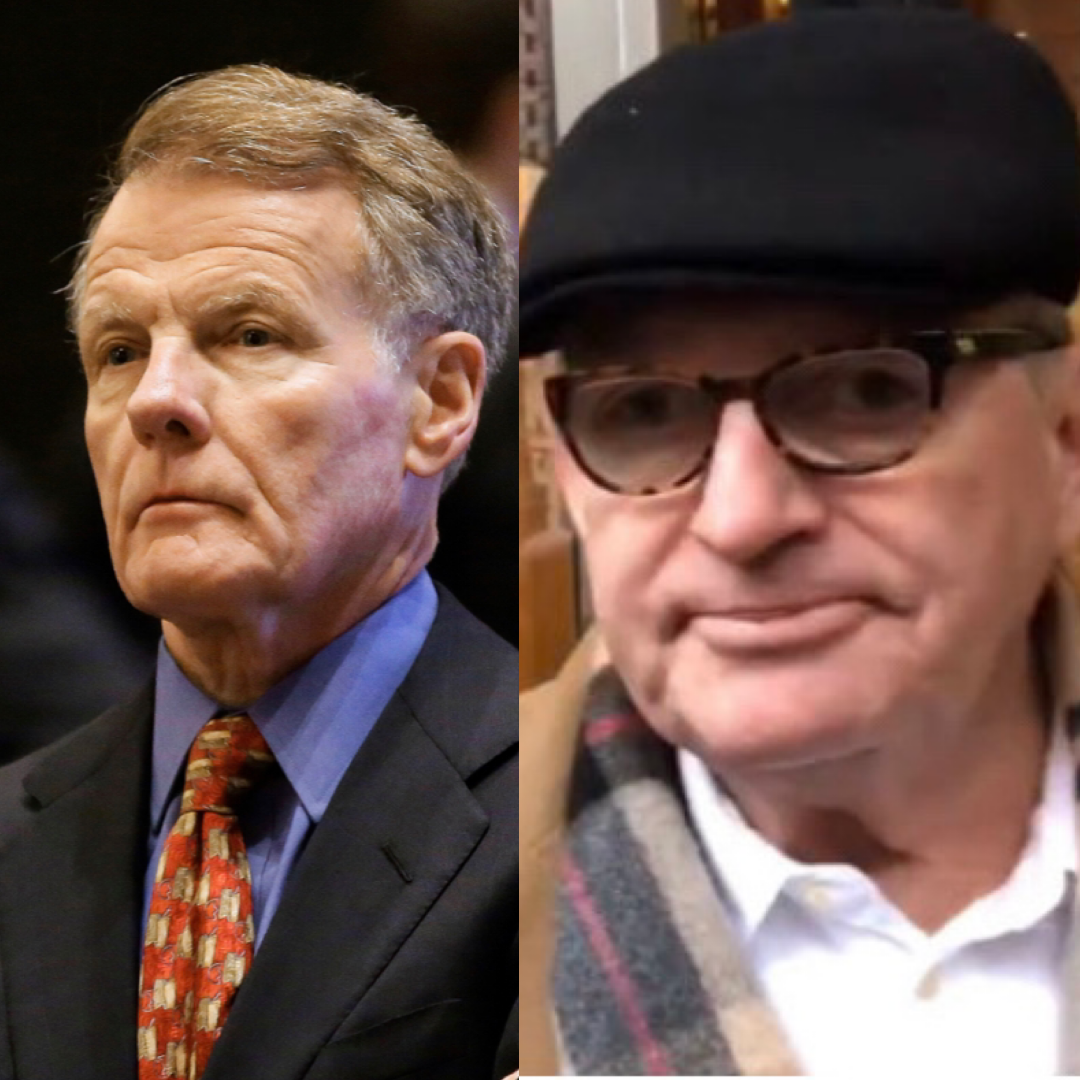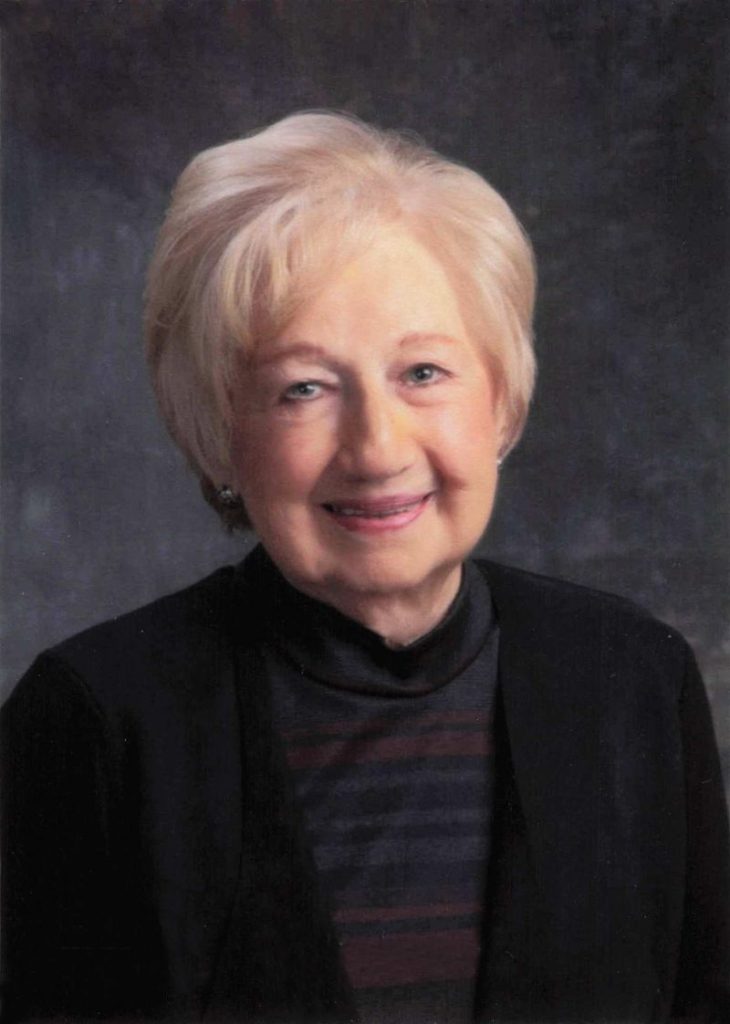Feds tell jurors of bribery web in Madigan corruption trial; McClain’s attorney’s to give opening statements today

CHICAGO — Opening arguments began Monday in the corruption trial of former Illinois House Speaker Mike Madigan, who faces 23 bribery, fraud, racketeering and conspiracy charges related to five “episodes” over the last 14 years.
The former speaker wore a charcoal suit with a red tie, watching dispassionately and taking notes as federal prosecutor Sarah Streicker laid out the government’s case against him.
“Madigan abused his power and used the organizations he led to engage in a pattern of corrupt conduct over and over and over again,” she told the jurors.
Madigan was once among the most powerful politicians in Illinois; prior to his March 2022 indictment he served as a Democratic state representative for the Chicago area for 50 years, led the state House of Representatives for 36 years and was chairman of the Illinois Democratic Party for over 20 years.
Prosecutors say he used that power to benefit himself and others in his circle, though Streicker clarified no one ever handed Madigan a bag of money. Instead she argued Madigan and his associates facilitated “sophisticated” schemes to funnel benefits throughout their network, which prosecutors have called the “Madigan Enterprise.”
“Without Madigan, legislation went nowhere, because he had the power to kill legislation in any number of ways,” Streicker said.
The biggest issue that the expected 11-week trial will examine is Madigan’s purported efforts to help pass legislation benefitting Illinois’ largest energy utility Commonwealth Edison between 2011 and 2019. In exchange for help getting those laws passed, prosecutors say the company helped arrange jobs, contracts and kickbacks for those in Madigan’s network. Streicker said that whether or not ComEd’s favored laws benefitted Illinoisans is irrelevant to how they were passed.
“The crime here is the means that was used to get this legislation passed, which was bribes,” Streicker said.
ComEd admitted to the bribery scheme in 2020 in exchange for a $200 million fine and a deferred prosecution agreement. In May 2023 jurors convicted the “ComEd Four,” a quartet of former ComEd lobbyists and executives, on multiple corruption charges for their own roles in the plot. Streicker name-dropped the four during her opening arguments, describing how they worked with Madigan to obfuscate ComEd’s influence on the legislature.
“ComEd wanted, ComEd gave, and ComEd got,” Streicker said.
One of the convicted ComEd Four, ex-state representative-turned-energy-lobbyist Michael McClain, also faces charges in this trial as Madigan’s co-defendant. Prosecutors accuse McClain, as they did during the ComEd Four trial, of acting as Madigan’s confidant and lieutenant.
“Madigan was not alone. He had a trusted, loyal, right-hand man. His co-defendant, Michael McClain,” Streicker said.
The second “episode” Streicker explained to jurors was similar to the first. She said telecommunications giant AT&T, like ComEd, also tried to influence state laws via Madigan between 2017 and 2018. The company wanted out of its state-mandated responsibility to provide landline services for Illinois customers, and the passage of a July 2017 law made it easier for AT&T to do so. Madigan supported the bill, even voting to override a veto by then-Governor Bruce Rauner, a Republican.
“The bribe in this instance was a single contract over the course of nine months for one of Madigan’s political cronies,” Streicker said, referring to former state Representative Edward Acevedo.
The government claims Acevedo received $22,500 over nine months from AT&T between 2017 and 2018. The payments were ostensibly part of a consulting contract Acevedo reached with AT&T via an external lobbyist, but Streicker argued he did no actual work for the company. Acevedo pleaded guilty to tax evasion in 2021 in a separate federal indictment.
Ex-AT&T Illinois President Paul La Schiazza also faced trial for his purported role in the scheme last month, but deliberations ended in a hung jury and mistrial.
The government accuses Madigan in the next two episodes of pressuring property developers in Chicago into hiring his private law firm Madigan & Getzendanner between 2017 and 2019. In exchange for the firm — now rebranded as Holland Hicks Law — receiving the developers’ tax work, Madigan would help move development through legislative hurdles with the help of his ally Danny Solis. Solis was formerly the alderman of a booming ward on Chicago’s South Side and chair of the city’s zoning committee.
“By virtue of being alderman of a ward with a lot of development in it, and by virtue of being head of the zoning committee, Solis had access to a lot of developers — exactly the kind of developers Madigan wanted as clients of Madigan & Getzendanner,” Streicker said.
Solis is slated to testify as one of the prosecution’s star witnesses later in trial. He turned mole for the FBI in 2016 in exchange for a deferred prosecution agreement on corruption charges going back to 2014. The evidence he provided, including secretly recorded conversations, contributed to other corruption charges against Ed Burke, another Madigan ally and the longest-serving city councilor in Chicago history. Jurors convicted Burke on 13 bribery, extortion and racketeering charges last December, for which he is now serving a two-year prison sentence.
Solis is also at the center of the last of the five episodes Streicker laid out for jurors. She explained how Madigan, unaware Solis had turned informant for the FBI, tried to arrange a lucrative state job for the alderman in 2018 with the administration of then-incoming Democratic Illinois Governor J.B. Pritzker.
Streicker painted this as Madigan trying to reward Solis for his work on the developers, an effort federal investigators encouraged Solis to play along with. News of Solis being a federal informant broke in early 2019, after which Streicker said he and Madigan stopped talking and Solis stopped feigning interest in a state board position.
“Madigan wasn’t pursuing this board position for Solis out of the goodness of his heart,” Streicker said. “He was aggressively pursuing business for his law firm.”
Madigan’s attorney Tom Breen offered his own interpretation of events. warning jurors they would hear some “out-and-out lies.”
“She is relying on guesswork and speculation. The evidence will not support a finding of guilt,” Breen said of the prosecution’s characterization of the trial evidence.
Breen recontextualized how Madigan and other players in the case acted through the relevant episodes. He painted Madigan as a working class, dedicated public servant; a “New Deal Democrat” for blue collar communities in Chicago and Illinois. What prosecutors called the “Madigan Enterprise,” Breen characterized as benevolent political organization.
“It wasn’t power and it certainly wasn’t greed” that motivated Madigan, Breen said.
Breen also criticized the prosecution’s reliance on evidence gathered with the help of Solis, whom he characterized as a “real beaut” with a “decrepit personal and professional life.”
His presentation to the jurors included several secretly recorded clips from Solis and a property developer named See Wong. In one of them dating to August 2014, Solis can be heard telling Wong — who was secretly recording Solis for federal investigators — that Madigan could help Wong with his development. The attorney called this exchange a part of the government’s “script,” one which he said Madigan rejected.
“Go in wearing a wire, set up a phony meeting, try to see if he’ll say something incriminating,” Breen said of Solis.
He also argued that snippets of secretly recorded phone conversations were insufficient to prove Madigan’s guilt.
“You don’t decide a case on clips,” Breen said.
The attorney concluded his openings by telling jurors to look at the whole context of Madigan’s work. The attorney said Madigan wasn’t “a saint” and at times did “ugly” work, but that it was all part of the former speaker’s honest attempt to keep Democratic coalitions afloat in Chicago and Springfield.
“Do you have to keep the Blacks and the Latinos and the Poles together? Yeah, but he could do it,” Breen said.
The start of trial proper comes after nearly two weeks of jury selection. The process took so long that presiding U.S. District Judge John Robert Blakey said last week he was considering a timer on testimony. Jury selection itself was delayed by six months from a planned start in April, due to the Supreme Court considering a bribery statute central to the government’s case.
McClain’s attorneys will give their opening arguments Tuesday.
Miss Clipping Out Stories to Save for Later?
Click the Purchase Story button below to order a print of this story. We will print it for you on matte photo paper to keep forever.

